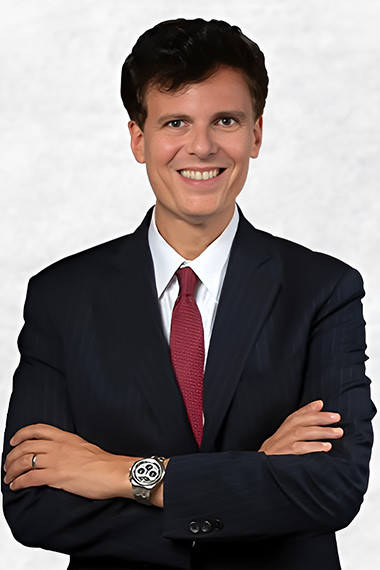
OVER
recovered for our employment law cases
Religion is one of the greatest freedoms in America. Yet it is well known that depending on what religious affiliation you are a part of, you may be discriminated against. Arguably, the worst place to be discriminated against is the place where you make your livelihood. Discrimination in the workplace is commonplace today, even if it is highly frowned upon, but there are laws that protect your First Amendment rights.
If you or a loved one have been discriminated against in the workplace due to your religion, it is important to contact an experienced New York City religious discrimination lawyer to fight on your behalf. Contact us online or call (212) 227-5700 to schedule your free consultation.
Table of Contents
- Why Choose Joseph & Norinsberg LLC for Your Religious Discrimination Case?
- The Role of a Religious Discrimination Attorney
- Potential Damages in a Religious Discrimination Lawsuit
- What To Do if You Are the Victim of Discrimination
- Laws Protecting Employees Against Religious Discrimination
- How To Prove Religious Discrimination in the Workplace
- Exceptions to Religious Discrimination Laws
- Take Action Against Religious Discrimination
- Contact A New York City Religious Discrimination Lawyer Today!
Why Choose Joseph & Norinsberg LLC for Your Religious Discrimination Case?
Facing religious discrimination in the workplace can be isolating, but you do not need to navigate this challenge alone. At Joseph & Norinsberg LLC, our New York City religious discrimination lawyers are committed to defending your rights and will give your case the undivided care and attention it deserves. We understand the intricacies of these cases and are ready to leverage our extensive experience and resources on your behalf.
Experienced Legal Team
Our firm has a skilled team of attorneys and paralegals, each experienced in New York City’s religious discrimination laws. Here is what sets us apart:
- Legal advocacy experience – Our lawyers possess deep knowledge of state and federal religious discrimination laws, ensuring comprehensive legal strategies tailored to your case.
- Dedicated support staff – Our paralegals and support staff are committed to providing personalized support to help you navigate your legal journey with confidence.
- Client-focused approach – We will prioritize your needs and diligently support you throughout the legal process.
We understand workplace claims of religious discrimination can overlap with other legal areas. Our team will carefully analyze your claim for indications of other issues and collaborate with lawyers skilled in the respective areas. These areas may include:
- Hostile work environments
- Race discrimination
- Gender discrimination
- Age discrimination
- LGBTQIA discrimination
We are proud of our five-star Google rating, not because of the number but because of the client satisfaction it represents. We treat all our clients like family, and they regularly stay in touch with us long after their cases are resolved. We regularly receive glowing client testimonials. For example:
Proven Track Record of Success
Joseph & Norinsberg LLC has a solid history of successfully managing complex religious discrimination cases. Our firm has received widespread media coverage in New York and New Jersey. Founding partners Bennitta Joseph and Jon Norinsberg bring extensive and invaluable experience to the table:
- Bennitta Joseph – Her background as a former prosecutor enhances her formidable litigation skills. She along with Jon Norinsberg and Diego Barros represented plaintiffs against the U.S. Coachways on Staten Island in a discrimination case to hold the defendant accountable for its “mercenary-style tactics that are used to infringe upon the rights of their employees.”
- Jon Norinsberg – Known for his dedication to civil rights litigation, Jon’s work has earned him significant accolades and media attention.
- Top industry recognition – Expertise.com has recognized our firm’s excellence in litigation by awarding us the “Best Litigation Attorneys in NYC” award.
Case Result: Joseph & Norinsberg obtained a 2.7 million dollar settlement on behalf of a class of cleaners who worked for a New York-based commercial cleaning company who alleged unpaid wages. After litigating the case for approximately one-year the firm was able to successfully resolve the allegations of employees represented in the case.
The Role of a Religious Discrimination Attorney
Choosing a skilled New York City religious discrimination lawyer is essential for effectively navigating your case. Among other things, our religious discrimination lawyers will help by providing the following services:
- Free case assessment – We will thoroughly evaluate your case to determine its viability and potential outcomes.
- Legal strategy development – We will craft a tailored legal strategy aligned with your unique circumstances and goals.
- Representation in negotiations and litigations – We will aggressively defend your rights in settlement negotiations and in court.
Potential Damages in a Religious Discrimination Lawsuit
Understanding potential damages available is crucial for assessing the value of your case. You may be compensated for various kinds of damages in a workplace religious discrimination case, including:
- Economic damages – These are tangible monetary losses, such as back pay, costs associated with searching for a new job, and reimbursement for mental health services needed due to the discrimination.
- Non-economic damages – These are intangible damages and somewhat more challenging to quantify. They may include compensation for things like emotional distress, inconvenience, and loss of enjoyment of life.
- Punitive damages – These are rare but can be substantial when the court finds them appropriate. Courts award these to punish employers for egregious misconduct and to deter similar future violations.
Assessing and Pursuing Compensation
Many factors influence the calculation of potential compensation, including the severity of the discriminatory acts and the impact on your career and mental health. Consulting with a knowledgeable religious discrimination attorney in NYC is vital to accurately assess and pursue the full extent of your damages.
What To Do if You Are the Victim of Discrimination
If you believe you have been subjected to religious discrimination in the workplace, it is crucial to take immediate steps to protect your rights. Taking these steps will strengthen your position and help hold your workplace accountable for religious discrimination:
Document Every Incident
Maintaining detailed records is foundational in proving discrimination:
- Record specifics – Document every incident involving discriminatory remarks, decisions, or actions against you, noting dates, times, and the individuals involved.
- Gather evidence – Keep copies of all relevant emails, memos, and other communications.
- Witness accounts – Compile statements or names of colleagues who witnessed these incidents.
Report Discrimination Internally
Follow internal procedures to formally address religious discrimination. Notify your manager or human resources department and follow your company’s reporting policies. Keep all records of your reports and complaints, as well as of your employer’s responses.
Seek Legal Advice
Our religious discrimination attorneys in NYC can explain your legal rights and options and help you respond to illegal discrimination. If legal action becomes necessary, having a knowledgeable attorney in your corner is essential for your case.
Laws Protecting Employees Against Religious Discrimination
Under Title VII of the Civil Rights Act of 1964, religious discrimination involves treating a person, whether an applicant or employee, unfavorably because of his or her religious beliefs. It also involves treating a person discriminately because of his or her connections with a religious organization or group.
Under both Title VII and New York State and City laws, an employer shall not discriminate against an employee or potential employee because of religion. Employers have a duty to make reasonable accommodations for employees who sincerely hold religious beliefs unless an employer demonstrates that such accommodation would subject it to an undue hardship.
Reasonable accommodations include, but are not limited to:
- Making exemptions to dress code and grooming requirements
- Permitting Sabbath observance
- Allowing reasonable breaks for prayer and other religious requirements.
Because the lines between “reasonable” accommodations can become blurry, it is invaluable to seek legal representation from an experienced New York religious discrimination attorney to determine whether you have a case.
How To Prove Religious Discrimination in the Workplace
Proving religious discrimination in the workplace requires a detailed understanding of the legal standards and a robust collection of evidence. As your NYC lawyers for religious discrimination cases, we will guide you through each step to establish a compelling case under federal, state, and municipal laws.
Establishing a Prima Facie Case
Title VII forbids religious employment discrimination “on the basis of race, color, religion, sex, or national origin.” To prove religious discrimination, you must establish a prima facie case. In Khaleel v. Heightened Sec. SVC Inc., the U.S. District Court for the Southern District of New York explained that to state a prima facie case of discrimination, plaintiffs must provide evidence that:
- They belong to a protected group,
- They were qualified for their position,
- Their employer took an adverse action against them, and
- The adverse action occurred in circumstances giving rise to an inference of prohibited discrimination.
See also Kirkland v. Cablevision Sys., 760 F.3d 223 (2d Cir. 2014).
Once you have established a prima facie case, your employer must provide a legitimate reason for the adverse employment action, such as undue hardship. If they do, the burden shifts back to you to prove the employer’s reason is an illegitimate pretext for discrimination.
Religious discrimination claims can be complex. It is essential to consult with a skilled religious discrimination attorney in NYC who can assess the strength of your evidence and develop a winning strategy tailored to your situation.
Exceptions to Religious Discrimination Laws
While federal, state, and city laws provide robust protections against religious discrimination in the workplace, there are exceptions that both employers and employees should be aware of. Consulting with a New York City religious discrimination lawyer can clarify how these exceptions might impact your case.
Recognized Exceptions
Again, certain exceptions exist to laws prohibiting religious discrimination. Two notable exceptions include the exemption of religious organizations and the undue hardship defense.
The ministerial exception allows religious organizations to legally give preference to people who share their beliefs when hiring. This preserves the organization’s religious principles.
The undue hardship defense allows employers to argue that making accommodations for religious practices imposes an undue hardship on their operation. This can include situations where accommodations result in significant financial costs or workplace efficiency disruptions. Importantly, a de minimis burden is insufficient—employers must show a substantial hardship.
Securing the help of an experienced attorney can protect your rights when navigating these exemptions. Consult with our religious discrimination lawsuit lawyers in New York City to understand how these legal exceptions might influence your case.
Take Action Against Religious Discrimination
Facing religious discrimination in the workplace can be profoundly distressing, but you do not have to endure it alone. Protecting your rights and ensuring that your workplace respects your religious beliefs are not just important for you—they set a precedent for fairness and equality for everyone.
At Joseph & Norinsberg LLC, our experienced New York City religious discrimination lawyers are well-versed in these cases and dedicated to defending your right to religious self-expression:
- Consultation is free and confidential – Our knowledgeable NYC religious discrimination lawyers offer 100 percent free and confidential consultations to ensure you know your full legal rights and options.
- Accessible legal help for religious discrimination in New York City – We’re here to make the legal process as transparent and accessible as possible.
- Proven track record – With decades of combined experience and a strong track record of success in religious discrimination cases, we are ready to handle even the most challenging situations.
Contact A New York City Religious Discrimination Lawyer Today!
If you have experienced religious discrimination in the workplace, our New York attorneys for religious harassment at Joseph & Norinsberg LLC can help. Contact us online or call (212) 227-5700 to schedule your free consultation.

Bennitta Joseph
Founder/Senior Managing Partner

Jon L. Norinsberg
Founder/Senior Managing Partner

Bennitta Joseph is a dedicated New York City sexual assault attorney with experience litigating cases involving workplace harassment. She takes on cases with uncompromising dedication, patience, and a relentless desire to achieve justice.
- New York Age Discrimination Lawyer
- New York Disability Discrimination Lawyer
- New York Gender Discrimination Lawyer
- New York Pregnancy Discrimination Lawyer
- New York Race Discrimination Lawyer
- New York LGBTQ Employment Discrimination Lawyer
- New York Weight Discrimination Lawyer
- New York Religious Discrimination Lawyer
Increased client’s severance for being discriminated against for their disability.
Defended 12 individuals facing discrimination and retaliation based on race and gender in the workplace.
Race discrimination case against a luxury brand in the fashion industry (confidential).